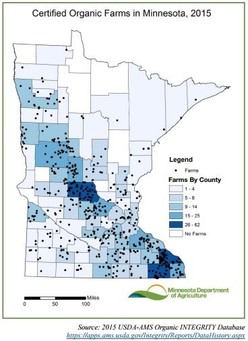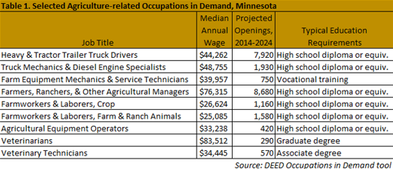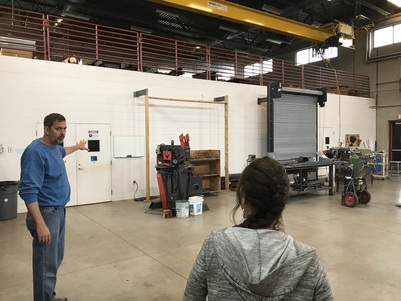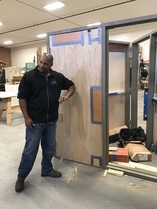Director's Corner
Hello everyone – I hope this
newsletter finds you all well as the school year gets into full swing and we
begin to bid adieu to summer.
Over the last several months,
our team has received an increase in phone calls related to getting the run-around or a lack of clarity in process or timeline when
they have sought services with local providers. Our team will be in closer
contact with local partners in the coming months to ensure that we are being
consistent with our messaging and clear with policy guidance. We understand
that our funding has been reduced at the federal and state level; we are
constantly being asked to do more with less. In order to continue running a
seamless program across the state, we will be in closer contact with all of you
so that we can weather these budget shortages together.
If a customer has a letter
of eligibility for the Trade Adjustment Assistance Program, s/he is
automatically eligible for the state Dislocated Worker program. Please enroll
those customers right away, as TAA
has some time sensitive elements and should come at a minimal cost to local
partners. The TAA program pays for the lion’s share of services.
Please reach out should you
have any questions or concerns. I look forward to being in closer touch!
Happy Labor Day, all.
Annie
Policy, Performance, and Grants Update
Eligible
Training Provider List and WIOA Certification Contact Changes
With the recent
departure of Sarah Sinderbrand from DEED, our Agency’s Performance Management
Office, led by Rachel Vilsack (rachel.vilsack@state.mn.us), will be taking on maintenance of the Eligible Training Provider
List and WIOA Certification. Rachel and her team have deep relationships with
partnering agencies through the Statewide Longitudinal Educational Data Systems
(SLEDS) work, making her team a natural fit for this important requirement
under the Opportunity Act. The relevant DEED policy on the ETPL and WIOA Certification has been updated with Rick Roy as the
contact.
National
Dislocated Worker Grants Update
Thanks to all of
our WDA partners who responded and submitted a “mini-application” to help us apply
for the WIOA Dislocated Worker Opportunity Grant. States are eligible applicants, with local Workforce Development Areas as eligible operators of services. We plan to submit the
application to the Department of Labor on Thursday, requesting $1,953,685 to
serve 464 dislocated workers over two years. According to the formula,
Minnesota is automatically eligible for $586,348, but there is nothing in the TEGL prohibiting us from a bigger ask. The worst DOL can do is
say “no”!
The Job-Driven
National Emergency Grant (JD NEG) closed on June 30, 2017. Much
appreciation to the two partners who made this happen – CMJTS and Washington
County. The grants served more than 70 participants; 76 percent received
credentialed training and OJT services.
Thank you for
your cooperation on the quarterly reports. DEED relies on partners to
update all participant data in Workforce One. Given this is a recurring process
until the end of a grant, please continue to update participant data as new
activities are opened or existing ones closed . If there is any change of
activity or reduction of participants at any given time, please do not hesitate
to contact Amy Carlson at amy.carlson@state.mn.us or Abdull Mohamed at Abdiwahab.mohamed@state.mn.us to discuss the best way forward.
Recently Published Policies:
-
Allowable
Activities - in the WIOA Adult and Dislocated Worker program sections of
our policy page.
-
Mass Layoff
Projects and Competitive Process in the Dislocated Worker program section
of our policy page.
We will soon be seeking
input on a policy on Incumbent Worker Training and Cost Category
Limitations/Waivers.
TAA Update
TAA
and Assessments
Any individual enrolled in the Dislocated Worker program seeking TAA
approved training must complete an assessment through their Dislocated Worker Counselor.
This assessment must be documented by the Dislocated Worker Counselor on the
Individual Employment Plan (IEP) and a copy of the completed assessment must be
attached to the TAA Training application.
Service
providers may select one assessment to use for all participants or use a
variety of different assessments available to the participant. The selection of an assessment is based on the
participant’s career/training goals, on participant preference, or TAA can provide access to CAPS, COPS and COPES. To utilize CAPS, COPS
and COPES, contact your TAA Specialist with your client’s name and email
address. TAA will send an invitation to that client to take the assessment. The
client can share results with the DW provider or TAA can send a pdf of the
results to the DW Counselor and the client.
Why are assessments important? Because they show due diligence in light
of the large sums of money that are spent on training and have been prescribed to
TAA as a best practice by monitors.
This also applies to the six eligibility criteria
to participate in TAA-funded training. Specifically:
- Item 2, the customer would
benefit from appropriate training. How
does the DW program and TAA determine appropriate training? By having the
client take an assessment.
- Item 5, the customer is qualified
to undertake and complete training. Again this is a determination that can be
made through assessments.
- Item 6, the training is suitable
for the customer and available at a reasonable cost. The key here is suitable
for the customer. Again, an assessment would provide key information as to
suitability.
- If you have questions about any of the above information please contact
Cindy Boyle at cynthia.boyle@state.mn.us or
651-259-7551.
 Corner On The Market:
With Cameron Macht
Regional Analysis & Outreach Manager
Minnesota Dept. of Employment & Economic Development
cameron.macht@state.mn.us
320-441-6596
|
Fertile
Fields of Work
Agriculture
is one of the most important industries in Minnesota, and Minnesota is one of
the most important states in the U.S. for agricultural production. With nearly
74,000 farms across the state, Minnesota was tied with Illinois for the 8th
largest number of farms overall. These farms produced billions of dollars in
the market value of both crop and livestock products, cultivating strong rural
economic growth.
According
to the USDA’s National Agricultural Statistics Service 2016 Annual
Bulletin, Minnesota ranked in the
top 10 states in dozens of categories, including ranking first in sugarbeet
production and first in turkeys raised, and top three in capacity of grain
storage, dry edible bean production, soybean production, hogs and pigs, and
pork production and exports.
 One area of agriculture that has seen
exceptional growth in recent years is organic farming, where Minnesota also
ranks in the top 10 states for nearly 20 types of crops and livestock. The
Minnesota Department of Agriculture’s new report on the “Status of Organic Agriculture in Minnesota in 2015” estimated that the state had about 630
certified organic farms in 2015, a 13 percent increase (see Map). That stands
in contrast to the number of farms in the state overall, which dropped by 1,000
farms from 2012 to 2016, a 1.3 percent decline.
To help
turnaround the state’s loss in farmers, a recent StarTribune article explained a law aimed to help young farmers get started.
Likewise, the Center
for Rural Affairs has a Beginning
Farmer & Rancher
program that provides resources for new and young farmers, as well as women and
veterans, to help them get started in the field.
In
addition to farms, the state’s strength in agriculture has led to strength in
several related industries, including food manufacturing, agricultural equipment manufacturing, and agriculture support activities. It has also created strong demand for
agriculture and natural resources workers, literally spanning from A to Z.
|
The list of related jobs on
the Minnesota State CAREERwise Education site starts at Agriculture Equipment
Operators and goes all the
way to Zoologists and Wildlife
Biologists, with
over 100 occupations in between. The upcoming harvest is creating high demand
for these farmworkers, equipment operators, truck drivers, and mechanics across
the state. The most recent Occupations
in Demand list for Minnesota
includes several farming occupations among those in highest need, such as:
While
most of these occupations can be learned on the job, the complexity of the
machinery used in agriculture is increasing the value of industry-specific
training or post-secondary education and may lead to higher wages. Jobs like
farmworkers and laborers, which have the lowest education and training
requirements, also have the lowest wages, while jobs that require some
specialized skills and training, such as truck drivers, farm equipment
mechanics, and diesel engine specialists, earn higher wages (see Table 1).

Creative Corner
 Union Apprenticeship Training
Center Tours (Hermantown)
Iron Workers Local 512
This past summer the Dislocated Worker Labor Liaison, Liz McLoone,
along with the rest of the Rapid Response team toured several union training centers
and got a first-hand look at their apprenticeship programs.
The tour started out in Hermantown with Iron Workers Local 512
and Carpenters Local 361. Ironworkers Local 512 has over 1,340 journey-level
ironworkers and 550 apprentices. Carpenters Local 361 has 900 journey-level
carpenters and over 200 apprentices.
Iron Workers Local 512 prides themselves on having a three year apprenticeship
program allowing individuals to earn as they learn. This gives their
apprentices a chance to gain on-the-job experience and bring home a livable wage
while they are in training.
At Local 512 they prepare
their apprentices to be skilled in all aspects of iron work. Structural ironworkers
unload, erect and connect fabricated iron beams to form the projects’ skeleton.
Reinforcing ironworkers fabricate and place rebar in concrete forms to
reinforce structures and install post-tensioning cables. Ornamental ironworkers install metal windows,
stairways, catwalks, gratings, doors, railings, fencing, elevator fronts and
building entrances.
Education does not stop with graduation from the Iron Workers
Local 512 apprenticeship program. The union’s National Training Fund offers
journey-level ironworkers a path to a welding certification and specialized
courses in foreman training and advanced safety/health classes.
Being a contributing member of the local community, the Local 512 Hermantown Apprenticeship Program has volunteered
on community projects such as the Bentleyville Tour of Lights 128 foot tall
Christmas Tree and the 148th Fighter Wing's Static Jet Display at the National
Airguard Base in Duluth.
Applications are currently being accepted for the Ironworkers 2018
Spring Apprenticeship classes for the program in Hermantown. For more
information please contact Brian Nelson at 218-733-2680 or iw512jacb@gmail.com. For information on the program in St. Paul please contact the
office at 651-489-3829.
 Carpenters Local 361
The Carpenters four-year Apprenticeship Program
combines classroom and hands-on training with on-the-job experience. Carpenters work in the residential and
nonresidential building construction industries.
Carpenters work
with and have skills in the following; print reading, building layout, timber
construction, leveling instruments, scaffolding erection, wall and stair form,
wood and metal framing, drywall applications/finishing, fire stop installation
and more.
Throughout their training
apprentices work as many as 7,000 hours on the job, side-by-side with skilled
industry veterans. Instructors reinforce this on-the-job experience with
between 144 and 520 hours of classroom and hands-on lessons at their training
centers.
In addition to great training
opportunities, the North Central States Regional Council of Carpenters offers
assistance to their members in which they can receive access to
referrals, counseling and advice on a range of issues when folks are feeling in
over their head. They also offer counseling for medical, behavioral health and
substance abuse.
Applications for the program can
be received at the Training Center, located at 5238 Miller Trunk Highway,
Hermantown MN 55811. For more information on the program in Hermantown please
contact (218) 729-9003. For
more information on the other Carpenters training programs in Minnesota please
go to: https://northcountrycarpenter.org/training-centersclasses.
|
Success Stories
The Rapid
Response team recently received an email from a job seeker about how grateful he is for the Dislocated Worker and Trade Adjustment Assistance programs. In honor of Labor Day we are going to share
his email AND Janet’s story.
Brian,
Newly Dislocated Worker
I just wanted to reach out and personally thank you
for all of the help you provided in getting us setup in the Dislocated Worker
Program. I know that from my perspective I was very nervous about the
entire situation. Your knowledge and insight into the program and the
enrollment process really helped to ease that nervousness. Thank you once
again!
 Janet, HIRED
In August
2016, I was laid off from my position as a buyer with a local company. I was
devastated, and with a daughter who had just started college, I was scared of
what was next. Fortunately, I found HIRED. I began working with Anita, my
career counselor, and we developed a plan to get me back to work.
I wanted
to continue developing my experience as a buyer, so Anita helped me update my
resume. She also suggested a number of job search workshops, including
workshops on personal branding and LinkedIn.
I updated my interviewing skills through mock interviews, and I
started networking.
At a hiring event for public
sector careers, I learned of a buyer position with the Minnesota Department of
Employment and Economic Development (DEED). It was the perfect fit, so I
applied. Soon after, I was called in for
interviews, and Anita helped me prepare. I’m proud to report that I’ve been a buyer with DEED since February 2017. I’m happy to be working again and thankful
for Anita and HIRED.
|
We want this e-Newsletter to meet your needs! We
encourage you to send your comments and suggestions to Liz.McLoone@state.mn.us,
View past editions of the Partner Express
Newsletter at http://mn.gov/deed/programs-services/dislocated-worker/counselors/news/index.jsp
Wanting to subscribe to this newsletter? Contact Liz McLoone at Liz.McLoone@state.mn.us with your request!
|